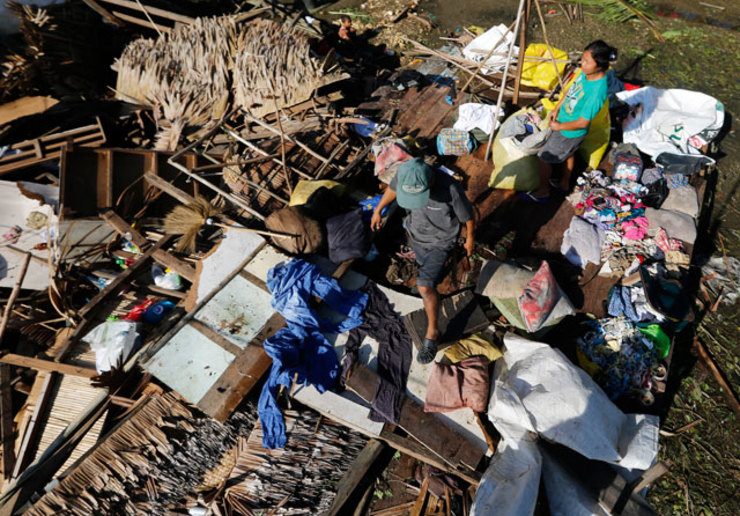SUMMARY
This is AI generated summarization, which may have errors. For context, always refer to the full article.

MANILA, Philippines – Insurance firms are bracing themselves for major claims as reports of heavy damage to properties start coming in due to Tropical Storm Ruby.
“Though this may not be exactly like Yolanda, still we are preparing for huge claims,” Philippine Insurers and Reinsurers Association (PIRA) Chairman Emmanuel Que said, referring to the super typhoon that hit the Visayas region in November 2013.
Que said it is too early to come up with estimates. “We will know in the coming days once we have received actual reports from the ground,” Que said.
PIRA, the umbrella organization of all non-life insurance companies in the country, estimates about P15 billion ($336.85 million) in insured losses from Super Typhoon Yolanda.
It would have been “a very good year for non-life insurance companies,” had Ruby not entered the picture, he said.
Non-life insurance policies such as automobile and homeowners policies, provide payments depending on the loss from a particular financial event.
Michael Rellosa, PIRA deputy chairman, said that less than 20% of the country’s 100 million people have some insurance coverage.
The estimate is down to 5% in rural areas such as those in Eastern Visayas that were recently hit by Ruby.
No coverage
The lack of insurance protection is one of the reasons some Filipinos are hesitant to evacuate in times of natural calamities, Rellosa said.
“This is the sad reality that the country contends with every time people are asked to evacuate to safer grounds in preparation for a coming typhoon,” Rellosa said.
Rellosa said people would not want to leave their homes behind because there is a big chance that they will have nothing left after the natural disaster has passed, Rellosa added.
Unlike in Japan where most people are insured, Filipinos in rural areas do not have anything to cling on to when calamities strike, Rellosa pointed out.
Rellosa said the Japanese would readily evacuate because they know that whatever happens, they have something to look forward to. “They can file insurance claims because their homes, motor vehicles, and even their businesses are insured,” Rellosa said.
But in the Philippines, a big number of Filipinos have no insurance protection.
“That is why they would not let go,” Rellosa lamented.
The value of microinsurance
Microinsurance is a good start for those most vulnerable to natural disasters, PIRA said.
Microinsurance is the protection of low-income people or those living on between approximately $1 and $4 daily. Major insurance firms and cooperatives offer microinsurance products.
“With microinsurance, they may not be able to recover everything they lost but at least they have something to use in rebuilding their lives after a calamity,” Rellosa said.
Tingi or sachet insurance, microinsurance costs as low as P12 ($0.27) monthly and packed with benefits ranging from P10,000 ($224.57) to P50,000 ($1,122.84).
When Super Typhoon Yolanda hit the Visayas last year, more than P700 million ($15.69 million) in microinsurance claims were paid to farmers and fisherfolk. – Rappler.com
*$1 = P44.62
Add a comment
How does this make you feel?
There are no comments yet. Add your comment to start the conversation.